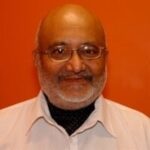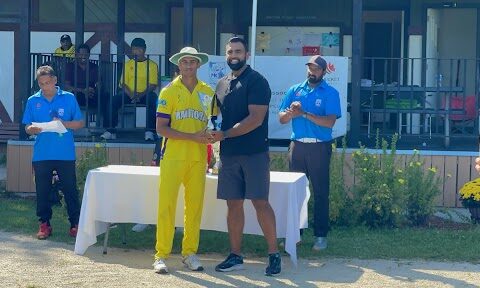The Islamic Social Services Association recently organized a conference on the theme of “At the Heart of Human Rights is Human Dignity” in Winnipeg.
It was attended by about 180 people, including many important speakers, but there was no local media coverage in the mainstream.
Andrew J. McLean, medical director of the North Dakota Department of Human Services and Chair of the Psychiatry Department at the N. Dakota School of Medicine, spoke on “Community Resilience and the Concept of the ‘Other.’”
He pointed out some unhealthy aspects of “otherization”: they are of less value; they are different from “me” and “us;” their differences are to be belittled; they are seen as “abject.”
“To work with another, you have to be able to admire something about them, even if you don’t like them,” said McLean.
The Rev. Dr. Loraine MacKenzie Shepherd, a United Church Minister, spoke on “Beyond Our Comfort Zone: the LGBTQ Community, Hopes, Challenges, Collaborations and the Right to Dignity,” pointing out that hate groups lump “undesirables” together: “A part of the brain lights up when we see another, but not if we ‘otherize’ them.”
Everyone has prejudices
“We all have xenophobia to some degree,” said Shepherd. “But we must learn to be in solidarity with one another. Openness and courage are necessary to build relations and trust across communities that usually distrust one another.”
The event featured several “Conversation Cafes”. One pointed out that prejudice may be positive or negative. Love is a positive prejudice which blinds us to the beloved’s negative qualities. Hate is the opposite.
The world is too complex for individuals to analyze each individual or phenomenon individually, and we don’t usually have the time. Consequently we fall back on our past experiences to make quick decisions.
For example, one may glance at the colour of the sky before leaving home and decide to carry one’s umbrella because that sort of sky often signals rain in our experience. One may then carry an umbrella all day, yet it may not rain; but if we ignore our past experiences, we deprive them of meaning.
We may have had negative (or positive) experiences justifying our pre-judgements, but should not fail to revise them when confronted with evidence to the contrary, concluded the participant.
Indifference and Silence are Threats
The Emcee, retired CBC Radio Host Terry MacLeod, welcomed Danny Smyth, Chief of the Winnipeg Police Service, and Scott Kolody, RCMP Assistant Commissioner, on the second day. In his address, Smyth said, “Women in our community will be a big part of the solutions.”
MacLeod called Shahina Siddiqui, Executive Director of the Islamic Social Services Association, “the godmother of everything that happened here,” and Kolody called her a leader.
Their greetings were followed by a heartfelt video message from Marie-Claude Landry, Chief Commissioner, Canadian Human Rights Commission. “Indifference and silence are threats,” she said.
A participant asked MacLeod why there were so few media people of colour in the mainstream. He replied that rectifying it was now a major project at CBC.
Another asked the lawmen what was being done about the over 100 extremist groups like “Soldiers of Odin” in Canada. The “Soldiers” even have a Facebook page. The policemen replied that they were networking and exchanging information.
Trump phenomenon
Haroon Siddiqui, an Editor Emeritus of the Toronto Star, then spoke on Islamophobia.
“(U.S. President Donald) Trump is doing what he said he’d do,” said Siddiqui: “And the Trump phenomenon has already happened here. Dozens of mosques have been vandalized, and Muslims assaulted. The alleged killer in Quebec was a Trump fan. We need to stand in solidarity with one another. Muslims can’t be maligned any more than they already have been. The ‘alt-right’ is code for white supremacists; indifference and inaction imply complicity with the victimisers.”
“Though Muslims aren’t interned, they feel a psychological internment.”
“The only crime of Canadians refused entry to the U.S. was that they weren’t white,” continued Siddiqui.
“Trump is similar to (former Canadian prime minister) Stephen Harper. Both elicited white support from their electoral bases. Once it was rumoured that Jews were taking over the world; now it’s Muslims. People talk of women’s status in Islam, but Muslim women are being spat on and shoved by North Americans.
“Have those who say the Koran says to kill infidels ever read the Old Testament? Wars call for propaganda, but one can’t separate Muslims there from Muslims here. When we demonize one, we demonize the other.”
Shahina Siddiqui thanked the funders at the end: Canadian Heritage, Sargent Blue Jeans, and The Winnipeg Foundation.
Ashoke Dasgupta is a Winnipeg-based journalist who has won three awards in Canada and Nepal.
Ashoke Dasgupta is a freelance journalist and former editor of Compassionate Friend, Beauty Without Cruelty-India's magazine. He won a UNDP - Goethe Institute Award for Environmental Journalism in Nepal 1995, and the Canadian Ethnic Media Association's Best News/Feature Awards for 2004 and 2006. He got a scholarship to study journalism at Sheridan College Toronto in 2007, graduating with high honours. He has done internships at the Winnipeg Free Press and CBC Radio, and been published in the Winnipeg Free Press, the Calgary Herald and the Toronto Star.




